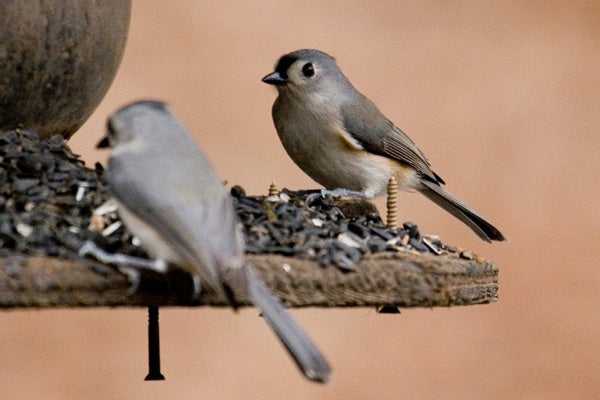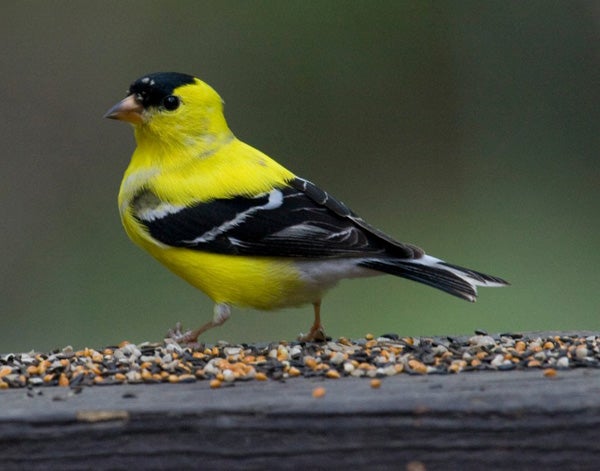
Story by Ashley Spence | Alabama Cooperative Extension
Contributed photos
Although winter can be a cold and dreary season for many people, there are those who know a secret to happiness during the bitter weather – they participate in wild bird feeding. Now that sunny spring weather has arrived, it is the perfect time to join in on the fun.
Dr. Jim Armstrong, a forestry and wildlife specialist with the Alabama Cooperative Extension System and self-proclaimed bird advocate, explains that seeing birds up-close can provide people with joy and peace of mind and that bird feeding is a great way to interact with birds personally.
“There is a certain quality of life that we get from seeing songbirds. When we see them and know they’re healthy, we feel happiness,” Armstrong said.
In order to maintain that feeling people have when they see birds around their homes, many individuals participate in bird feeding. Armstrong shares that he receives many calls and emails asking why some birds have not been seen each year or describing the new birds that have been observed that season by avid bird feeders and watchers, which truly shows the passion behind this hobby.
As winter is coming to an end and spring nears, there are a wide variety of birds flocking through Alabama for residents to see and feed. Dr. Geoff Hill, a professor of biological sciences at Auburn University, says that birdwatchers often see hawks, sparrows, finches, chickadees and ducks during this time of year. Many of these birds migrate through Alabama to avoid the harsh winter weather of their home regions; in fact, there are more birds in the Deep South during the winter than in the summertime.
“People are so often shielded from nature. They go from their house to their car, from their car to their office and so on,” Hill said. “But feeding birds is entry into the world of natural history; a bird feeder brings nature right to your window.”

That being said, birds are not the only creatures attracted to bird feeders. Hill warns people to be proactive when it comes to keeping squirrels out of your bird feed because they are so active and acrobatic. If squirrels get to a bird feeder, they often chew on it until it falls apart. A single squirrel can eat as much as a whole flock of birds, and it will likely spill as much as it eats. Some feeders are designed so that any creature that weighs more than a bird closes off access to seed. Although these do typically cost a bit more, Hill advises anyone interested in bird feeding to invest in one. It is also suggested that you place bird feeders in open areas of your yard if possible; this will prevent squirrels and other creatures from being able to leap from a tree, fence or other object onto the feeder.
To attract the largest variety of birds, Hill suggests that you use black oil sunflower seeds because they provide a lot of energy to the birds and it is relatively inexpensive to purchase. However, if you are interested in attracting birds less commonly seen at bird feeders like woodpeckers, it may be to your advantage to use suet in your feeder. It is vital that you keep your bird feeder clean and the feed in it fresh for the birds, regardless of what type of feed you choose to use, in order to avoid disease transfer among birds. A simple combination of Clorox and water will sufficiently clean a feeder and after allowing it to dry, fresh seed may be placed in the feeder.
Additionally, Hill recommends that anyone interested in taking up bird feeding as a hobby goes to a local business dedicated to bird feeding to learn more about your specific region.
Hill emphasizes that “birds don’t really need a handout. Bird feeding is for people, not for birds. It raises awareness and appreciation for nature.”
As the weather becomes warmer and many people are spending more time outside, this truly is the perfect time to start a new hobby. By participating in this activity, you can help to spread awareness and appreciation for both nature and birds while bringing a piece of the natural world to your very own yard.
